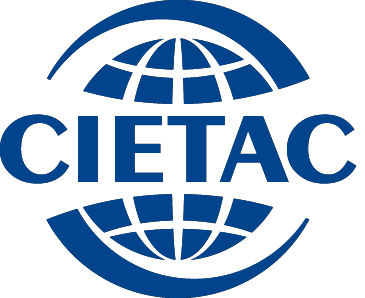- Home
- About Us
- News Center
- Commercial Arbitration
- Arbitrators
- ADR-Service
- Key Events
-
Talent Development
Talent Development
CIETAC CUPFrankfurt Investment Arbitration Moot Court - CIETAC Chinese (Mainland) National RoundChina Youth Arbitration Forum and the “Zhonglun Cup” National Commercial Arbitration Essay ContestCooperation with UniversitiesCIETAC International Arbitration InstituteTraining of Foreign-Related Legal TalentCIETAC Internship Opportunity - Research and References
On November 22, 2024, the China International Economic and Trade Arbitration Commission (CIETAC) organized an expert seminar on the Draft Amendment to the PRC Arbitration Law (the “Draft Amendment”), which was recently deliberated at the 12th Meeting of the Standing Committee of the 14th National People's Congress.
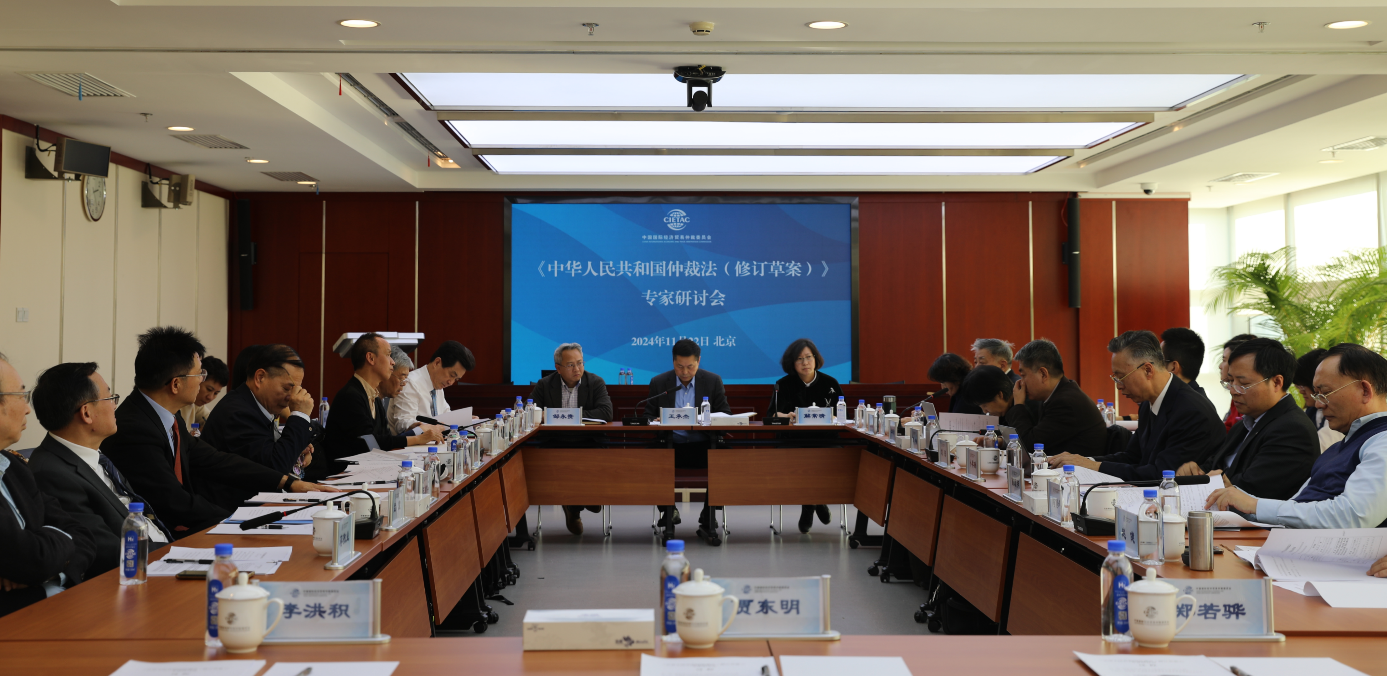
(Conference site)
In order to respond positively to the need for law revision, and make China's arbitration law align with the requirements of the times, meet the needs of development, and become a widely recognized legal norm of arbitration, CIETAC, taking advantage of its professional strengths, invited nearly thirty senior arbitrators from universities, courts, industry associations, enterprises, law firms and other fields for joint discussion. Wang Chengjie, Vice Chairman and Secretary-General of CIETAC, attended the seminar and delivered a speech.
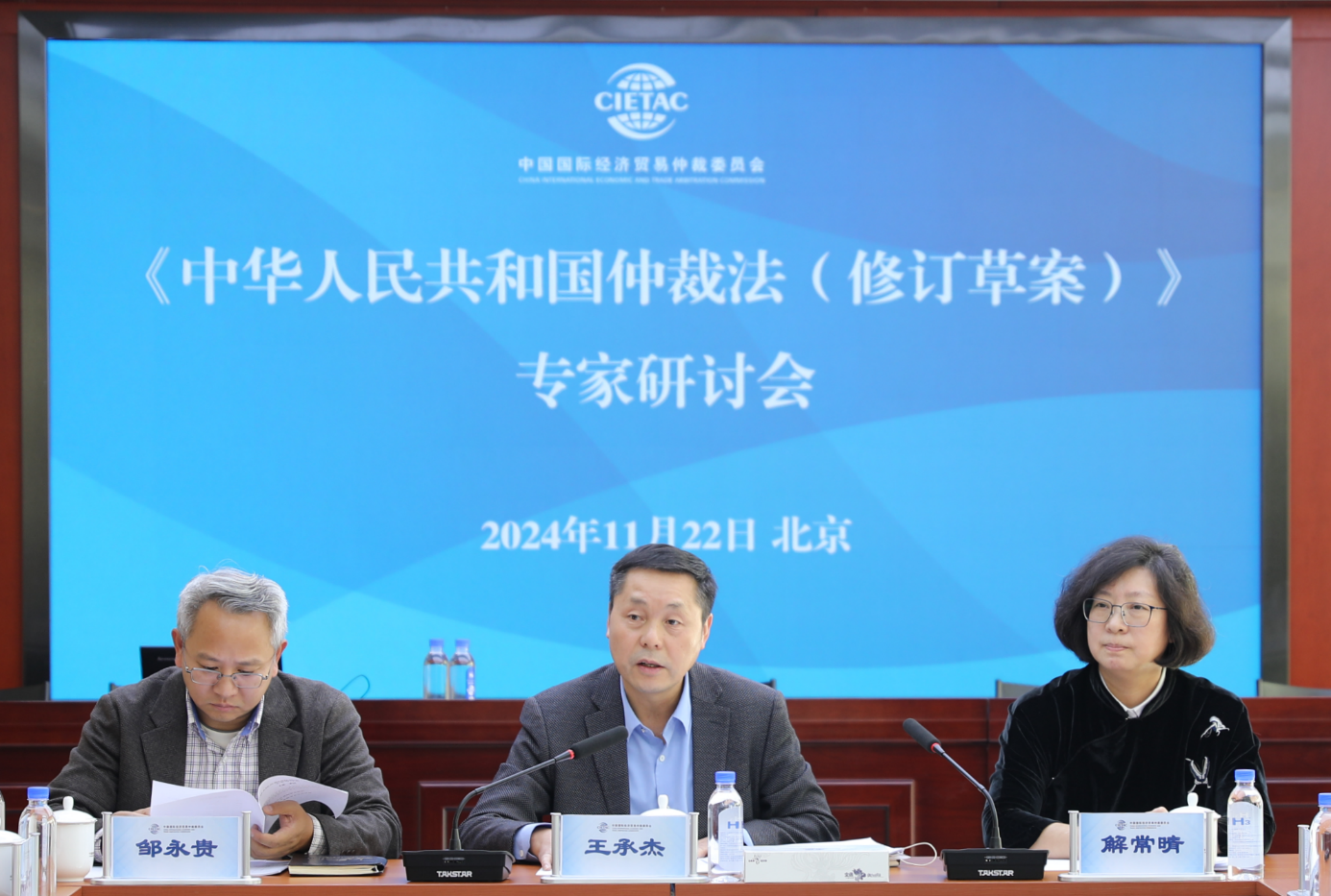
(From left to right, Zou Yonggui, Secretary of the Disciplinary Committee of CIETAC, Wang Chengjie, Vice Chairman and Secretary General of CIETAC, and Xie Changqing, Vice President of the Arbitration Court of CIETAC)
The seminar reviewed the development of arbitration in China. The PRC Arbitration Law has been in force for nearly 30 years since 1995. Under the guidance of the Arbitration Law, China's arbitration has flourished and formed an arbitration system and practices with Chinese characteristics, making due contributions to promoting the development of China's market economy, advancing the rule of law, serving the Belt and Road Initiative, and safeguarding a fair and reasonable order of international economic, trade and investment. The establishment of China's arbitration system began with CIETAC's foreign-related arbitration. Since its inception, CIETAC has attached great importance to international practices and formulated arbitration procedural rules consistent with international practices, which have played an important role in attracting foreign investment and carrying out foreign trade during the process of reform and opening up, thus providing China's arbitration legislation with valuable experience of CIETAC's foreign-related arbitration and the core concepts of international arbitration.
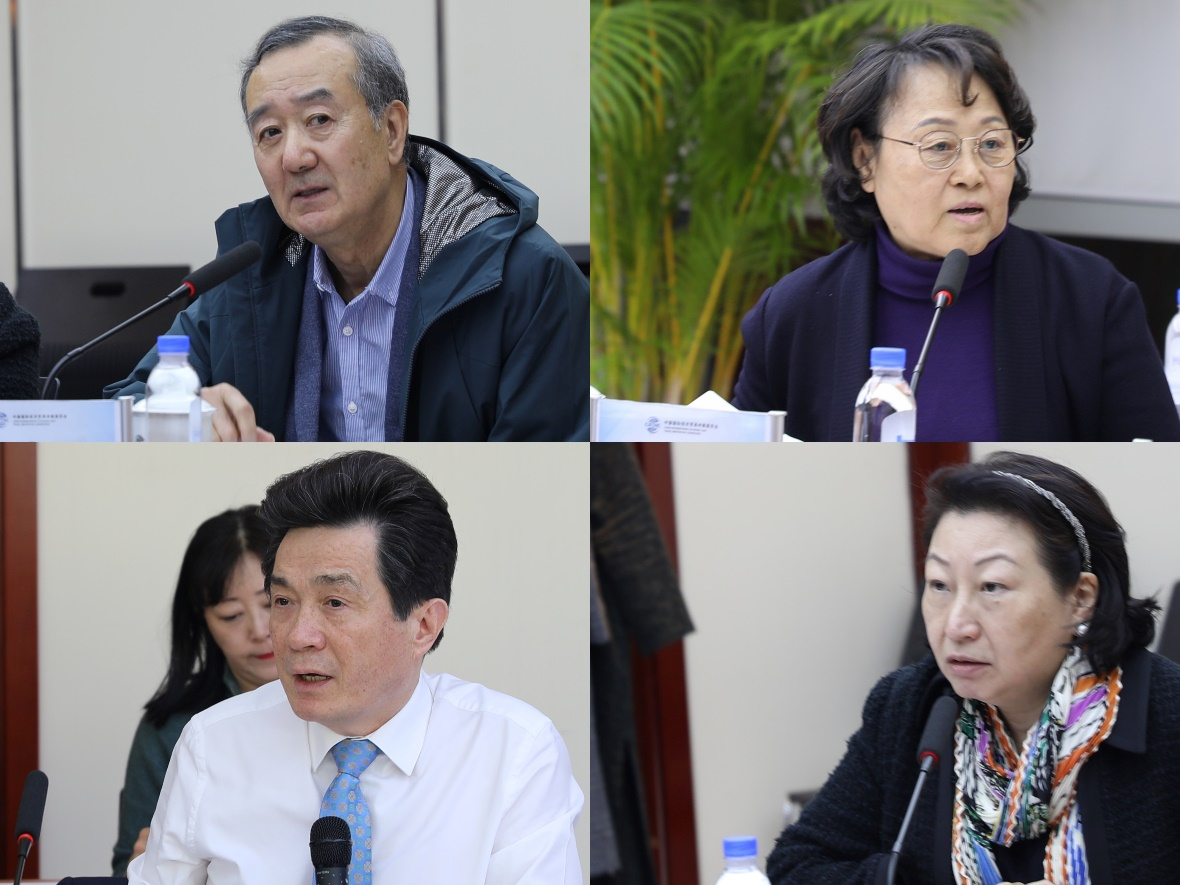
(From left to right and top to bottom: Jia Dongming, former Director of the Civil Law Office of the Law Commission of the Standing Committee of the National People's Congress and Deputy Chairman of CIETAC, Liu Lanfang, former Chief Judge of the Second Civil Division of the Beijing High People's Court, Tao Jingzhou, independent arbitrator, and Teresa Cheng, Co-Director of the International Arbitration and Dispute Resolution Programme of School of Law of Tsinghua University)
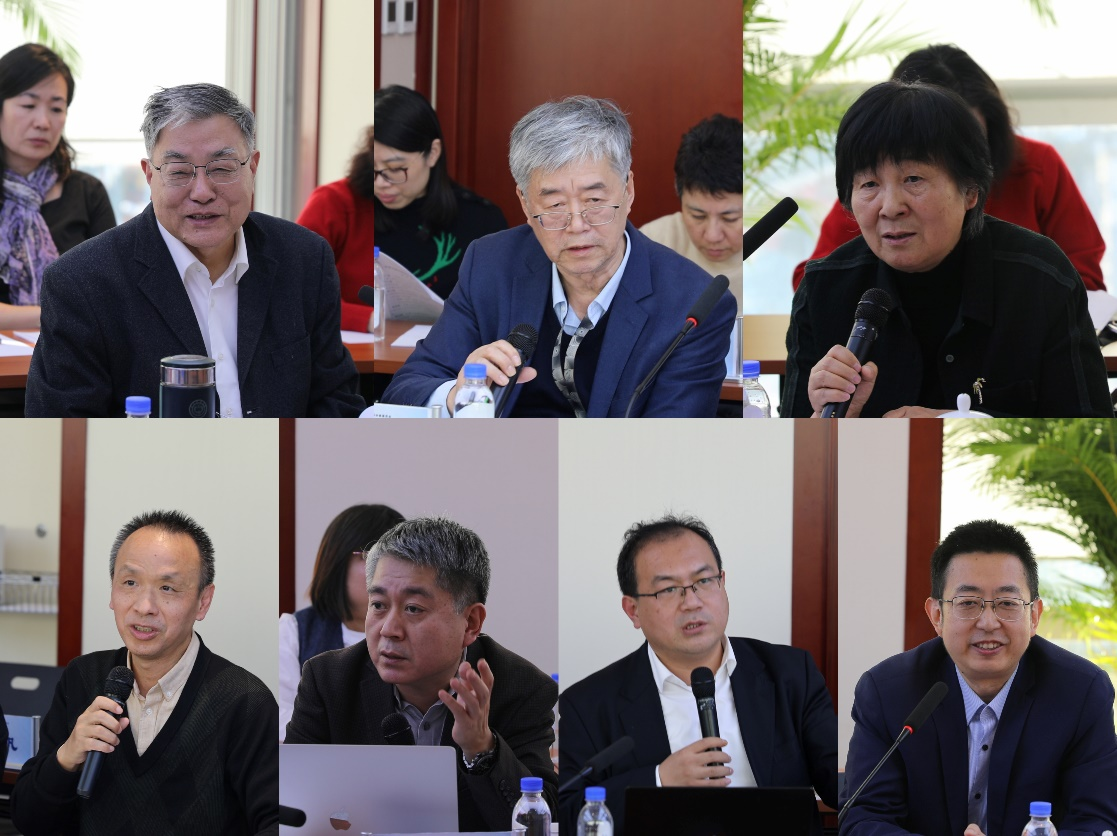
(From left to right and top to bottom: Sun Xianzhong, Member of the Chinese Academy of Social Sciences, Che Pizhao, Professor of School of Law of Tsinghua University, Du Xinli, Professor of the School of International Law of the China University of Political Science and Law, Song Lianbin, Professor of the School of International Law of the China University of Political Science and Law, Deng Feng, Professor of the School of Law of Peking University, Yin Fei, Dean of the School of Law of the Central University of Finance and Economics, and Liu Tong, Professor of the School of Law of the University of International Business and Economics)
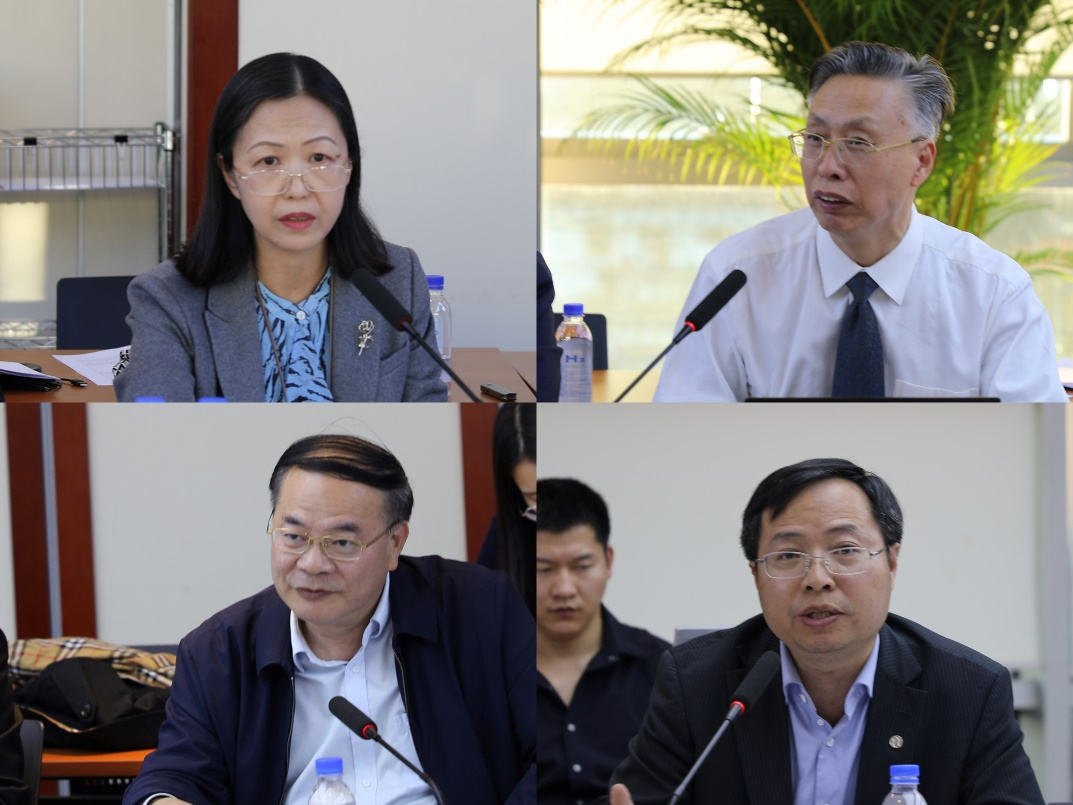
(From left to right and top to bottom: Huang Rui, former General Counsel of China General Consulting & Investment Company Limited, Bu Xiangrui, former Chief Legal Counsel of China Banking Association, Hu Zhenjie, former General Counsel of Aluminum Corporation of China, and Cao Shunming, Assistant General Manager of China Re Group)
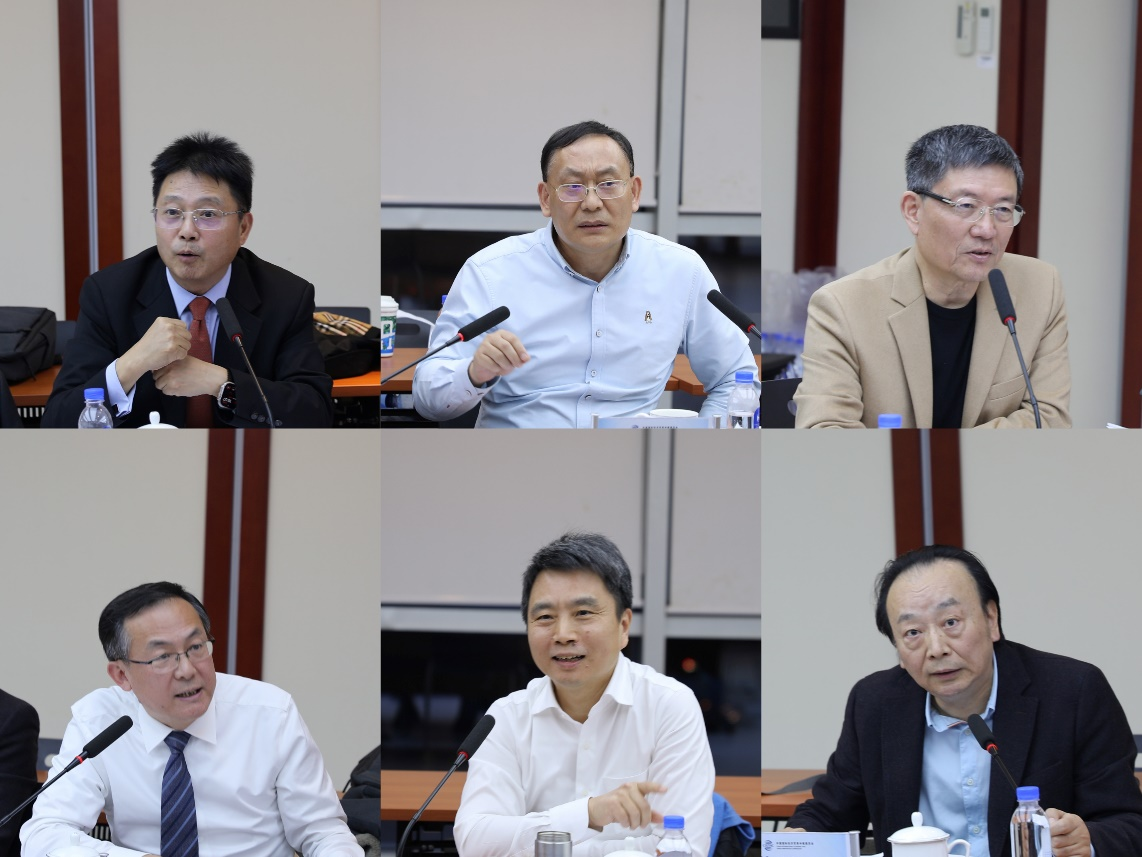
(From left to right and top to bottom: Wang Xuehua, Partner of Beijing Huanzhong & Partners, Tao Xiuming, Partner of JunZeJun Law Offices, Li Hongjie, Partner of Commerce & Finance Law Offices, Meng Ting, Partner of GoldenGate Lawyers, Zhao Jian, Senior Consultant of Zhong Lun Law Firm, and Jiang Jingye, Partner of Global Law Office)
The participating experts shared opinions from their respective professional backgrounds, focusing on the basic principles and legal functions of arbitration law, comparative reference to domestic and international arbitration systems, synergistic division between arbitration law and arbitration rules, and coordination between arbitration supervision and management and the unique attributes of arbitration.
The experts generally agreed that the revision of the Arbitration Law comes at a critical point of opportunity for the development of arbitration in China. Building China into an international commercial arbitration center has become a national strategic plan, which requires an advanced law with Chinese characteristics and international features as a fundamental safeguard. Based on the national conditions, the Draft Amendment adheres to the principle of institutional arbitration and guiding the parties to select the arbitration institution, and introduces the international concept of seat of arbitration. It also supports the “going out” and “bringing in” of arbitration institutions, and makes useful attempts to solve the outstanding problems in the arbitration system and practice. The revision of the Arbitration Law should be based on the legal function of procedural law, adhere to the principle of safeguarding unique attributes of arbitration, such as autonomy, independence and professionalism, and reflect the international nature of arbitration. Further, the Draft Amendment should summarize China's invaluable practical experience in arbitration, reflect the latest development of international arbitration, fully release the new dynamic of the arbitration industry, continuously enhance the international credibility and competitiveness of China's arbitration, and promote the construction of a preferred place for international commercial arbitration. It should actively create a first-class business environment that is market-oriented, governed by the rule of law and internationalized, and give better play to the role of arbitration in serving economic development and expanding opening-up.
In conjunction with the specific provisions of the Draft Amendment, the seminar also centered on the validity of arbitration agreement, conditions for the selection of arbitrators, disclosure and challenge of arbitrators, the seat of arbitration, interim measures, sham arbitration, enforcement and setting aside of arbitral awards, special provisions on foreign-related arbitration, and disclosure of information and fee schedule by arbitration commissions, among other relevant issues.
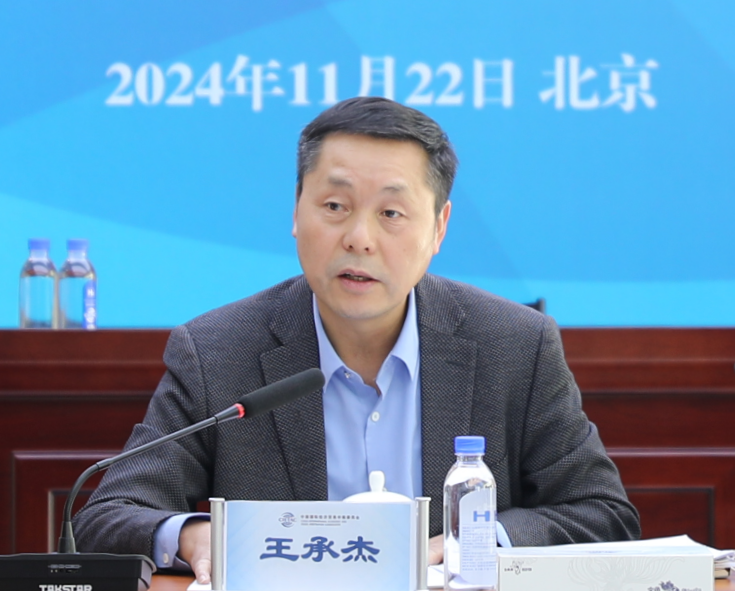
(Concluding remarks by Secretary-General Wang Chengjie)
Wang Chengjie, Vice Chairman and Secretary-General of CIETAC, made a concluding speech. He thanked all the experts for their rich, comprehensive and valuable opinions based on their high responsibility and commitment to China's arbitration cause. He pointed out that under the guidance of the 1995 Arbitration Law, China’s arbitration has developed healthily and vigorously. With the social and economic changes at home and abroad as well as the continuous innovation of arbitration practice, it is necessary to revise and improve the Arbitration Law, which has been in force for nearly 30 years, in accordance with the latest development of international arbitration and the needs of the parties. In recent years, CIETAC has attached significant importance to the revision of the Arbitration Law, closely followed and coordinated with the law revision, organized multiple expert seminars to listen to a wide range of opinions, and submitted professional suggestions on many occasions, which have been adopted. At the same time, he pointed out that attention should be paid to dealing with the dialectical and unified relationship between the arbitration law and arbitration rules, supervision and development of the industry, and the national conditions of China and international practices, so as to navigate the Chinese path to modernization, and to ensure that the key role of arbitration could be fully and effectively leveraged in serving the high-level opening up, integrating the rule of law at home and in matters involving foreign parties, and actively participating in international governance.
Xie Changqing, Vice President of CIETAC Arbitration Court, presided over the seminar. Zou Yonggui, Secretary of the Disciplinary Committee of CIETAC, and heads of relevant divisions attended the seminar.
{{ article.quickLinkTitle ? article.quickLinkTitle : 'Quick Links' }}
Quick Links







